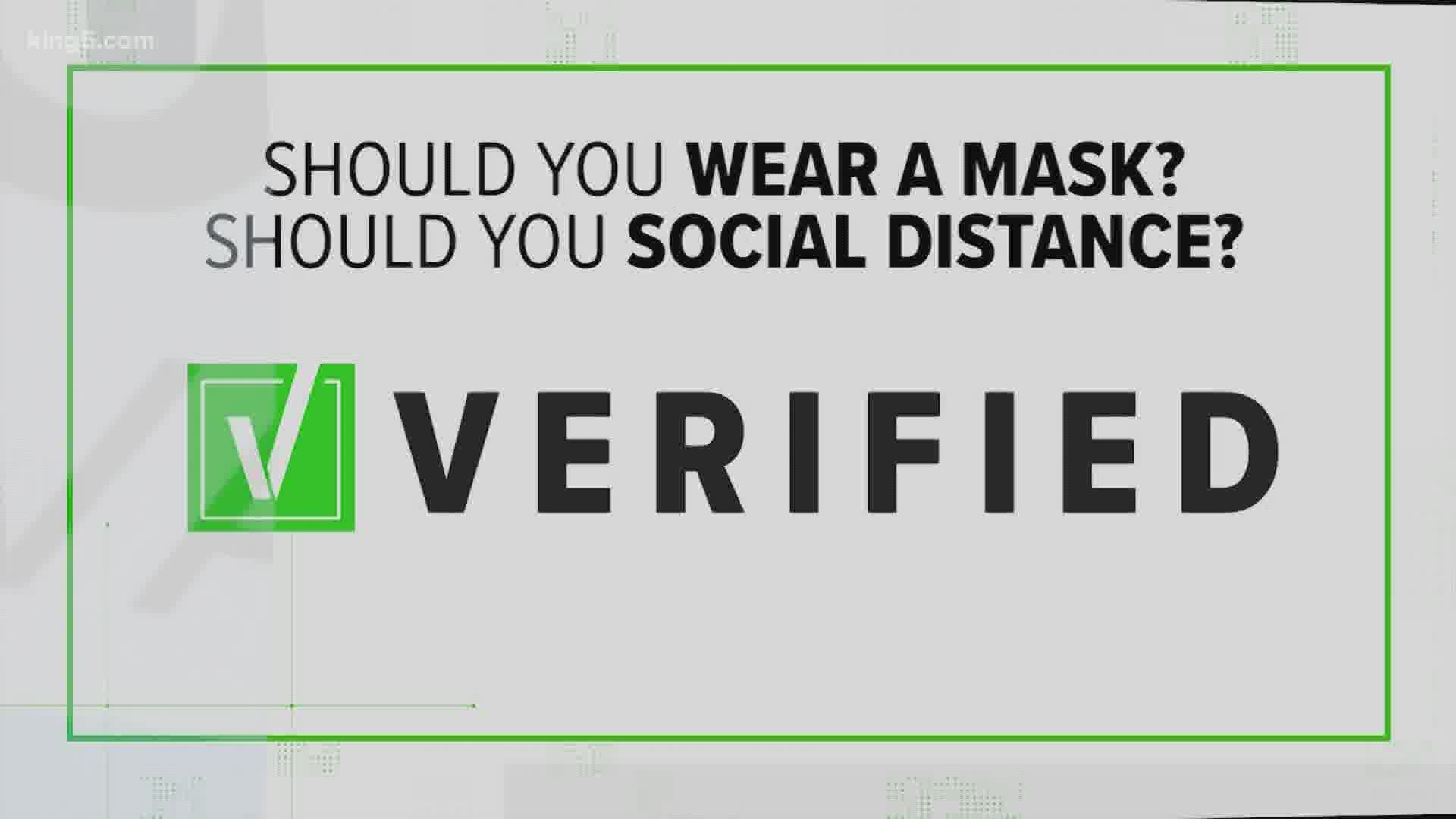SEATTLE — Can you still spread coronavirus, even after you’ve been vaccinated? Unfortunately, the answer is – yes.
To verify, we asked Dr. Peter Rabinowitz, a world-renowned epidemiologist, and the co-director of the University of Washington’s Alliance for Pandemic Preparedness.
"By getting the vaccine, you're making a huge investment in reducing your risk of both getting it yourself and transmitting it to other people," Rabinowitz told KING 5. "But that doesn't mean you've gotten rid of the risk."
As he explained, nothing is fool-proof.
"As good as they are, they are not 100%," said Rabinowitz, when talking about the COVID-19 vaccines.
"If it's a 90% effective vaccine, that means there's a 10% chance that you could still get infected. So, for that reason, you need to consider, when you're in a high-risk situation – should you wear a mask, should you social distance? And, basically, the answer is yes, you should still continue to do that," he continued.
He added, even if the vaccine does work properly, "it's possible that you could be protected against severe infection, but still have a very, very mild case that you don't even realize. But it is still possible to give to somebody else."
Lastly, the new variants of the coronavirus present a new problem.
At least three cases of the new U.K. variant of COVID-19 have been detected in western Washington.
"They can be more transmissible than the viruses we've seen before. And they may not always be protected against the vaccines that were developed several months ago," Rabinowitz said.
"There's a chance that you will not be 100% protected, and therefore, we need to be even more cautious than before. And thinking about continuing to wear masks. We've seen the positive impact of wearing masks. And it's not time to give that up yet," he said.

